Address
304 North Cardinal
St. Dorchester Center, MA 02124
Work Hours
Monday to Friday: 7AM - 7PM
Weekend: 10AM - 5PM
Address
304 North Cardinal
St. Dorchester Center, MA 02124
Work Hours
Monday to Friday: 7AM - 7PM
Weekend: 10AM - 5PM
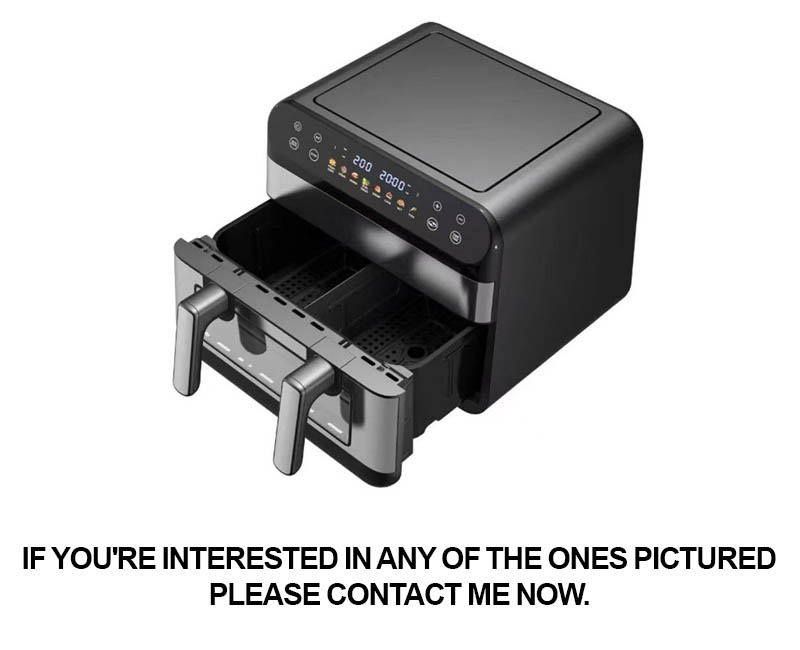
In a world where culinary innovation meets health consciousness, the rise of air fryers has been nothing short of revolutionary. These kitchen gadgets have transformed the way we cook, offering a healthier alternative to traditional frying methods. As the demand for these versatile appliances grows, understanding the intricacies of choosing the right NSF certified air fryer plant for your business becomes crucial. This article delves into the innovative features that set these air fryers apart, the market trends shaping consumer demand, and the future prospects that promise even more advancements in the industry. Whether you’re a restaurant owner, a foodservice operator, or a health-conscious consumer, embracing technology for a healthier kitchen is not just a choice—it’s a necessity.
In recent years, the culinary landscape has undergone a remarkable transformation, with air fryers emerging as a game-changer in commercial kitchens across the globe. Once a staple in home kitchens, these compact appliances have now taken center stage in restaurants, cafes, and fast-food chains, redefining the way we cook and eat.
The popularity of air fryers in commercial settings is no coincidence. Their ability to offer a healthier alternative to traditional frying methods has caught the attention of health-conscious consumers and forward-thinking chefs alike. By using hot air to circulate around food, air fryers reduce the amount of oil needed, resulting in dishes that are lower in fat and calories without sacrificing flavor.
This shift towards healthier cooking has been further propelled by the rise of fast-casual dining, where speed and convenience are paramount. Air fryers allow operators to quickly prepare a variety of dishes, from crispy French fries to golden-brown chicken wings, all while maintaining a lighter nutritional profile.
Moreover, the versatility of air fryers has expanded their appeal. They can roast, bake, and even dehydrate, making them a multipurpose tool that can streamline kitchen operations. Chefs have discovered that these appliances can be used to create a wide array of dishes, from appetizers to desserts, all with the added benefit of a reduced cooking time and energy consumption.
The convenience factor cannot be overstated. Air fryers are compact, easy to clean, and require minimal maintenance. They also offer precise temperature control, allowing chefs to achieve consistent results every time. This level of control is particularly valuable in busy kitchens where consistency is key to customer satisfaction.
Another key driver behind the rise of air fryers in commercial kitchens is the increasing emphasis on sustainability. As restaurants and foodservice operators look for ways to reduce their environmental footprint, air fryers provide a greener alternative to deep-fat fryers. They consume less energy and generate less waste, making them an eco-friendly choice that aligns with the values of modern consumers.
The technological advancements in air fryer design have also played a significant role in their adoption. Modern air fryers come with features like adjustable temperature settings, pre-programmed cooking modes, and even WiFi connectivity, allowing operators to remotely monitor and control their appliances. These innovations have made air fryers more accessible and user-friendly, further contributing to their growing popularity.
In the realm of foodservice, innovation is key to staying competitive. Air fryers have become a symbol of culinary evolution, as they enable operators to offer a wider range of healthier options without compromising on taste or texture. This has opened up new opportunities for creativity in the kitchen, with chefs experimenting with different ingredients and cooking techniques to create unique and appealing dishes.
The rise of air fryers in commercial kitchens is also a testament to the power of consumer demand. As more people seek out healthier food options, they are voting with their wallets, pushing the industry to adapt. Operators who embrace air fryers are not only catering to these changing preferences but are also positioning themselves as leaders in the health and wellness movement.
From fast-food joints to fine dining establishments, the presence of air fryers is becoming a standard feature. It’s not just about healthier cooking; it’s about a cultural shift towards mindful eating and sustainability. Air fryers have become a symbol of this movement, representing a new era in commercial cooking where health, efficiency, and environmental consciousness go hand in hand.
In conclusion, the rise of air fryers in commercial kitchens is a multifaceted phenomenon driven by health trends, technological advancements, and consumer preferences. As these appliances continue to evolve and integrate into the everyday operations of foodservice establishments, it’s clear that they are here to stay, reshaping the way we cook and eat in the years to come.

In today’s fast-paced culinary landscape, the rise of air fryers in commercial kitchens is nothing short of a revolution. These appliances have become a staple in restaurants, cafes, and hotels worldwide, offering a healthier and more efficient alternative to traditional deep-fat frying. But what exactly sets a commercial air fryer apart, and why has it garnered such attention? Enter NSF Certification, a benchmark that ensures these fryers not only perform well but also meet stringent safety and quality standards.
NSF Certification stands for National Sanitation Foundation, an independent organization that sets standards for public health and safety. When a commercial air fryer is NSF Certified, it means it has undergone rigorous testing and evaluation to meet the highest industry standards. This certification is particularly important in the foodservice industry, where maintaining hygiene and safety is paramount.
The certification process for a commercial air fryer involves several key components. First and foremost, the appliance must be designed with safety in mind, ensuring that it doesn’t pose any risk of electric shock, fire, or chemical leaks. This includes testing the material resistance to heat and the electrical components’ integrity.
Secondly, the performance of the air fryer is scrutinized to ensure it consistently delivers the desired results. This includes verifying that the fryer reaches and maintains the correct temperature for cooking food without overcooking or burning. The consistency in temperature is crucial for maintaining the quality and safety of the food being prepared.
Thirdly, the certification process examines the machine’s ability to handle various types of food without compromising safety or taste. This includes testing how the air fryer performs with different oils and food items to ensure it doesn’t leach harmful substances into the food.
Another critical aspect of NSF Certification is the examination of the air fryer’s durability and maintenance requirements. The appliance must be able to withstand the rigors of a commercial kitchen environment, including high temperatures, constant use, and frequent cleaning. Additionally, the manufacturer must provide clear instructions for maintenance and cleaning to ensure the longevity and safety of the fryer.
One might wonder why such a certification is necessary for an air fryer. The answer lies in the potential risks associated with cooking equipment. Without proper certification, there’s a chance that a fryer could pose health hazards due to subpar materials or poor construction. This could lead to the contamination of food, posing a serious risk to consumers’ health.
For businesses, choosing an NSF Certified air fryer plant is a wise investment. It not only guarantees that the fryer will perform as expected but also ensures compliance with health codes and regulations. This can save businesses from potential fines, legal issues, and reputational damage.
Moreover, NSF Certification provides consumers with peace of mind. When they see the NSF logo on an air fryer, they know that the product has been independently evaluated and meets specific standards for safety and quality. This can be a significant factor in their purchasing decision, especially in the foodservice industry where trust and safety are paramount.
In recent years, the demand for healthier cooking methods has surged, and air fryers have become a popular choice. The health-conscious consumer is looking for alternatives to deep-fat frying, which is often associated with higher levels of unhealthy fats. NSF Certified air fryers offer a solution that allows for crispy, golden results without the excess fat.
Beyond health considerations, the environmental impact of cooking methods is also a growing concern. Air fryers use significantly less oil than traditional fryers, reducing waste and environmental footprint. This aligns with the broader trend of sustainability in the foodservice industry, where businesses are increasingly looking to adopt eco-friendly practices.
In conclusion, NSF Certification is more than just a stamp of approval; it’s a commitment to quality, safety, and performance. For commercial air fryer plants, achieving this certification signifies their dedication to providing the best possible products to the foodservice industry. And for businesses and consumers, it’s a reassuring sign that the air fryers they choose are reliable, efficient, and above all, safe.
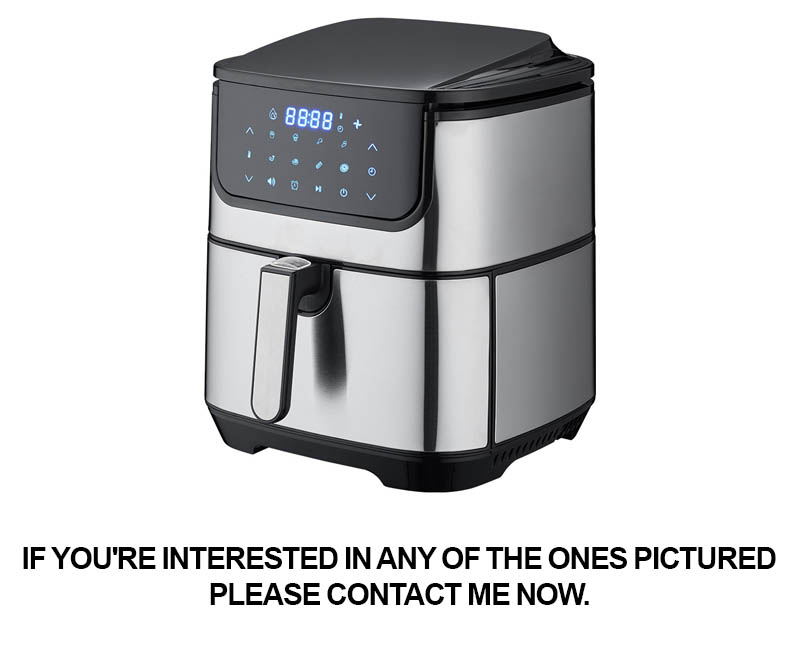
In the bustling world of commercial kitchens, the presence of a NSF certified commercial air fryer plant is more than just a trend; it’s a cornerstone of quality and safety. This certification carries significant weight, ensuring that the air fryers produced meet rigorous standards that are crucial for both the business and the end consumers.
The air fryer plant’s NSF certification signifies a commitment to excellence in design, manufacturing, and safety. It’s a testament to the plant’s adherence to stringent protocols that are recognized worldwide. This certification is not just a checkbox on a list but a promise to deliver products that are reliable, efficient, and above all, safe.
Safety is paramount in the commercial kitchen environment, where equipment failure can lead to serious consequences. A NSF certified air fryer plant ensures that every unit leaving the facility is designed to withstand the rigors of constant use. The certification process involves rigorous testing to confirm that the air fryers can handle high temperatures without risk of fire or electrical hazards, and that they are built to prevent accidental burns to kitchen staff.
Efficiency is another key aspect where the NSF certification shines. In a commercial setting, time is money, and the air fryers from a certified plant are engineered to cook food quickly and evenly. This not only enhances the productivity of the kitchen but also contributes to the bottom line by reducing energy costs and minimizing waste.
Consistency is vital in foodservice operations, and the NSF certification guarantees that the air fryers from the plant are consistent in their performance. This means that every batch of fries, chicken, or vegetables cooked in these fryers will be of the same high quality, providing a consistent customer experience. This reliability is especially important in brands that rely on their reputation for consistency.
The environmental impact of kitchen operations is also a growing concern. A NSF certified air fryer plant often incorporates energy-efficient technologies into their designs, reducing the carbon footprint of the kitchen. This not only helps businesses to be more sustainable but also appeals to environmentally conscious consumers who are increasingly looking for eco-friendly options.
Moreover, the certification process involves a thorough examination of the manufacturing processes and quality control measures. This means that the air fryer plant not only produces a high-quality product but also maintains a high standard throughout its operations. This level of oversight ensures that the plant is committed to continuous improvement and is not complacent in its efforts to provide the best possible product.
In the event of a recall or safety issue, having a NSF certified air fryer plant behind your equipment can be a lifesaver. The certification process includes a requirement for the plant to have a robust recall process in place, ensuring that any issues are addressed promptly and effectively. This not only protects the consumer but also maintains the brand’s integrity.
The value of a NSF certified commercial air fryer plant extends beyond the product itself. It’s a symbol of trust and quality that can differentiate a business in a crowded market. For customers, it’s a reassurance that the food they are served is being prepared with the highest standards of safety and quality in mind.
For businesses, the certification can be a competitive advantage. It opens up opportunities to work with larger clients and brands that have stringent requirements for their suppliers. It also provides a platform for innovation, as the plant is encouraged to stay ahead of the curve in terms of technology and safety features.
In summary, the importance of a NSF certified commercial air fryer plant cannot be overstated. It’s not just about the product; it’s about the entire ecosystem of safety, quality, and reliability that comes with it. For any commercial kitchen looking to invest in air fryers, choosing a plant with this certification is a decision that pays dividends in safety, efficiency, and customer satisfaction.
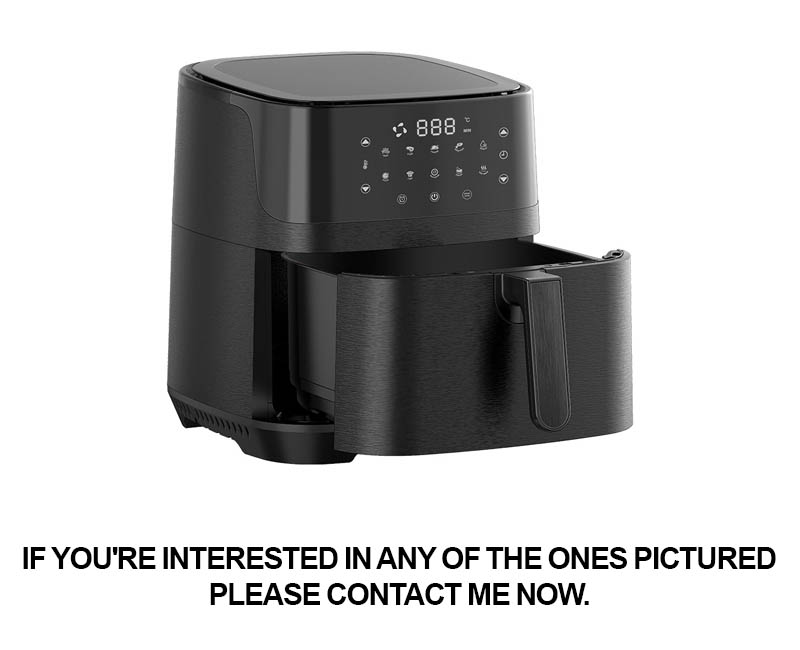
In recent years, the commercial air fryer market has seen a surge in popularity, driven by a growing demand for healthier, yet delicious, fried foods. One of the key factors contributing to this trend is the introduction of innovative features found in NSF certified air fryer models. These features not only enhance the cooking experience but also ensure that businesses can offer their customers the highest standards of quality and safety.
The first standout feature of these air fryers is their advanced heating technology. Unlike traditional deep fryers, which require gallons of oil to cook, NSF certified air fryers use a high-powered fan to circulate hot air around the food, resulting in a crispy outer layer and a tender interior with significantly less oil. This not only reduces the calorie count of the food but also minimizes the risk of oil-related fires and spills in commercial kitchens.
Another key innovation is the precise temperature control. These air fryers are equipped with digital displays that allow chefs to set and maintain exact temperatures, ensuring consistent cooking results every time. This level of control is crucial for businesses that want to serve food that is perfectly cooked, whether it’s crispy French fries or golden-brown chicken wings.
The ability to cook a variety of foods in one appliance is a game-changer for commercial kitchens. NSF certified air fryers often come with multiple baskets or trays, allowing for the separation of different types of food. This not only prevents cross-contamination but also means that a restaurant can cook a variety of items simultaneously, saving time and labor costs.
Safety is paramount in any commercial kitchen, and NSF certified air fryers are designed with this in mind. They feature non-stick surfaces that reduce the risk of food sticking and burning, making cleanup a breeze. Additionally, many models come with automatic shut-off functions that activate when the unit is left unattended or the cooking time has elapsed, preventing potential accidents.
Energy efficiency is another critical aspect for businesses looking to cut costs and reduce their environmental footprint. NSF certified air fryers are engineered to use less energy than traditional fryers, which can lead to significant savings on utility bills over time. This feature is particularly appealing to eco-conscious establishments aiming to operate sustainably.
The convenience of programmable settings is also a notable innovation. Chefs can set up their air fryers to cook a range of items with pre-programmed settings, from frozen French fries to chicken nuggets. This automation not only simplifies the cooking process but also allows for more efficient use of kitchen staff, as they can focus on other tasks while the air fryer handles the cooking.
In terms of versatility, NSF certified air fryers often come with a variety of attachments and accessories. These can include baking pans, rotisserie spits, and even dehydrator trays, allowing for a diverse range of cooking methods within the same machine. This means that a commercial kitchen can use the same air fryer for frying, roasting, and even dehydrating, maximizing its utility and reducing the need for multiple appliances.
The inclusion of smart technology in some models is also worth mentioning. With features like Wi-Fi connectivity and mobile app integration, chefs can monitor and control their air fryers remotely. This is particularly useful for managing cooking processes when a kitchen is operating at peak times or when staff are busy with other tasks.
Lastly, the durability of these air fryers is a testament to their quality. Made with commercial-grade materials, they are built to withstand the rigors of a busy kitchen environment. The robust construction ensures that these appliances will last for years, providing a solid investment for any business.
In summary, the innovative features of NSF certified air fryers have revolutionized the commercial kitchen landscape. From their efficient cooking methods to their safety features and energy savings, these appliances offer a multitude of benefits that are hard to ignore. For any business looking to elevate their menu offerings while maintaining high standards of quality and safety, an NSF certified air fryer is an invaluable addition to their kitchen arsenal.
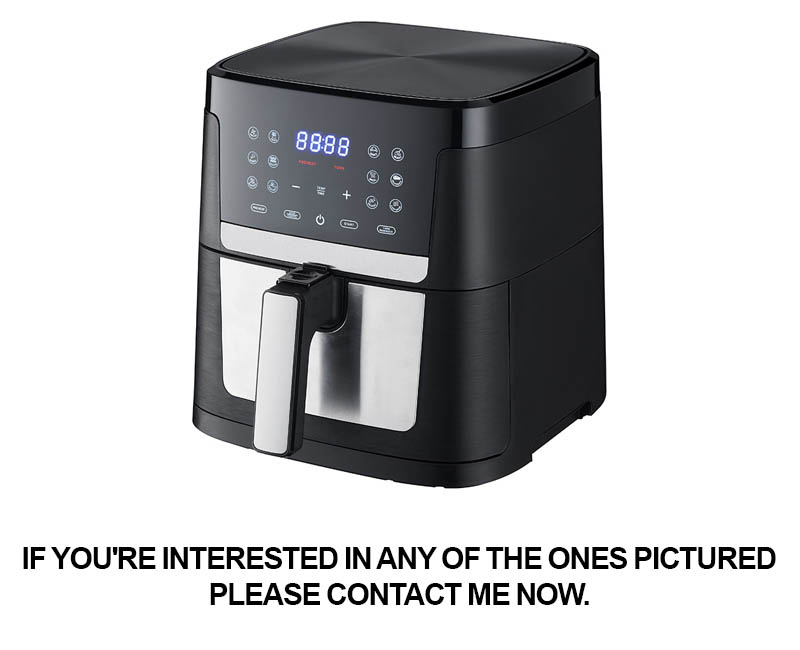
In the ever-evolving landscape of kitchen appliances, air fryers have emerged as a game-changer. This surge in popularity isn’t just a fleeting trend; it’s a testament to the changing demands and preferences of consumers. Let’s delve into the current market trends and the consumer demand that’s driving this shift.
The Shift Towards Healthier Cooking MethodsConsumers are increasingly aware of the health implications of their dietary choices. Traditional frying methods often result in high-fat, calorie-dense foods, which can lead to health issues over time. Air fryers, on the other hand, offer a healthier alternative by using hot air to circulate around the food, reducing the need for oil. This shift towards healthier cooking methods is a significant factor in the rise of air fryers in both commercial and domestic settings.
The Convenience FactorIn today’s fast-paced world, convenience is king. Consumers are looking for appliances that can help them prepare delicious meals without spending hours in the kitchen. Air fryers are designed to be quick and easy to use, with minimal cleanup. This convenience is particularly appealing to busy professionals, parents, and anyone seeking a quicker alternative to traditional cooking methods.
Technology IntegrationModern air fryers are not just simple cooking appliances; they are equipped with cutting-edge technology. Smart features such as digital displays, timers, and preset programs make it easier for users to achieve perfect results with minimal effort. This technological integration is a reflection of the evolving consumer demand for smart, efficient appliances that can simplify daily tasks.
Eco-Friendly and Sustainable ChoicesEnvironmental concerns are at the forefront of many consumer decisions. Air fryers, being energy-efficient and reducing the amount of oil used in cooking, align with the growing trend towards eco-friendly living. Consumers are more likely to invest in products that not only cater to their health and convenience needs but also contribute to a sustainable future.
The Rise of Vegan and Gluten-Free CookingAs the vegan and gluten-free diets gain traction, the demand for versatile appliances that can cater to a variety of dietary preferences is on the rise. Air fryers offer a versatile solution for preparing a wide range of foods, from crispy tofu to roasted vegetables, making them a favorite among those following these diets.
Globalization of Food TrendsWith the world becoming more interconnected, food trends are spreading faster than ever. The popularity of international cuisines, such as Korean street food or Mediterranean dishes, has surged, and air fryers have become a key tool in replicating these flavors at home. This globalization of food trends has expanded the market for air fryers, as consumers seek to recreate their favorite dishes with ease.
Customization and PersonalizationToday’s consumers want to be able to tailor their cooking experiences to their personal preferences. Air fryers often come with a variety of cooking modes and settings, allowing users to adjust the cooking temperature and time according to their specific needs. This level of customization is a direct response to the demand for personalized cooking experiences.
Inclusivity and AccessibilityThe success of air fryers is also a result of their inclusivity and accessibility. These appliances are not just for the health-conscious or tech-savvy; they are for everyone. Their affordability and ease of use make them accessible to a broad audience, ensuring that a wide range of consumers can enjoy the benefits of air frying.
In conclusion, the market trends and consumer demand for air fryers are a complex interplay of health consciousness, convenience, technological advancements, environmental concerns, dietary preferences, global food trends, and the desire for customization and inclusivity. As these trends continue to evolve, air fryers are well-positioned to remain a staple in kitchens around the world.
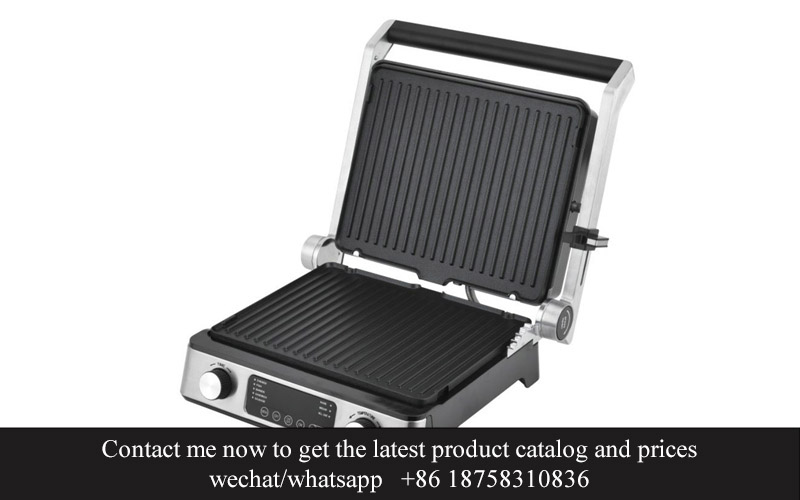
In today’s fast-paced and environmentally conscious world, businesses are constantly seeking ways to improve their efficiency and sustainability. This quest has led to a significant shift in the commercial kitchen industry, where the adoption of eco-friendly practices and energy-efficient appliances has become not just a trend but a necessity. Here’s how efficiency and sustainability are creating a win-win situation for businesses across the board.
Cooking equipment, such as air fryers, has evolved to meet these demands. These modern appliances are not only reducing the carbon footprint but also cutting down operational costs. By using less oil and providing faster cooking times, they’re helping restaurants and commercial kitchens to become more efficient without compromising on quality.
Energy savings are a cornerstone of sustainability, and the latest NSF certified air fryer models are leading the charge. With advanced technologies that optimize heat distribution and minimize energy waste, these fryers are designed to consume less power while still delivering perfect crispy results. This efficiency not only helps businesses lower their utility bills but also positions them as environmentally responsible entities in the eyes of consumers.
Moreover, the reduction in oil usage is a game-changer. Traditional fryers require large volumes of oil, which can be harmful to both the environment and the health of customers. The new wave of air fryers uses a fraction of the oil, making them a healthier choice for diners and a greener option for operators. This shift in cooking methodology has also led to innovations in oil-free and low-fat recipes, expanding the menu possibilities for businesses looking to cater to health-conscious consumers.
Waste reduction is another area where efficiency and sustainability intersect. By optimizing the cooking process, commercial air fryer plants help minimize food waste. The precise control over cooking times and temperatures means that food is cooked to perfection, reducing the risk of undercooking or overcooking, which can lead to discarded products. This not only saves money but also aligns with the growing movement towards reducing food waste, a critical issue in the foodservice industry.
In terms of maintenance, NSF certified air fryers are designed to be durable and easy to clean. This reduces the need for frequent repairs and replacements, which in turn saves time and resources. The use of high-quality materials and robust construction ensures that these fryers can withstand the rigors of a busy commercial kitchen, contributing to their long-term sustainability.
For businesses looking to appeal to a broader audience, sustainability initiatives can be a powerful marketing tool. With consumers increasingly valuing brands that demonstrate a commitment to the environment, showcasing eco-friendly practices and energy-efficient appliances can enhance a company’s reputation and attract a loyal customer base. This is especially true in the food industry, where health and environmental concerns are at the forefront of consumer consciousness.
The integration of smart technology into air fryers is another aspect that contributes to their efficiency and sustainability. Features like programmable settings and remote monitoring allow for precise control over cooking processes, reducing energy consumption and ensuring that food is cooked to the desired specifications without unnecessary energy waste.
Furthermore, the lifecycle of these appliances is being extended through the development of more durable components and easier recycling processes. By designing fryers with the environment in mind, manufacturers are encouraging businesses to make more sustainable choices throughout the appliance’s lifespan.
In conclusion, the efficiency and sustainability of NSF certified commercial air fryer plants are transforming the commercial kitchen landscape. From reducing energy consumption and waste to enhancing health and environmental practices, these fryers are not just a cooking tool but a strategic investment for businesses aiming to thrive in a more eco-conscious world. The synergy between efficiency and sustainability is clear: by operating smarter and greener, companies can achieve cost savings, improve their reputation, and contribute positively to the planet.
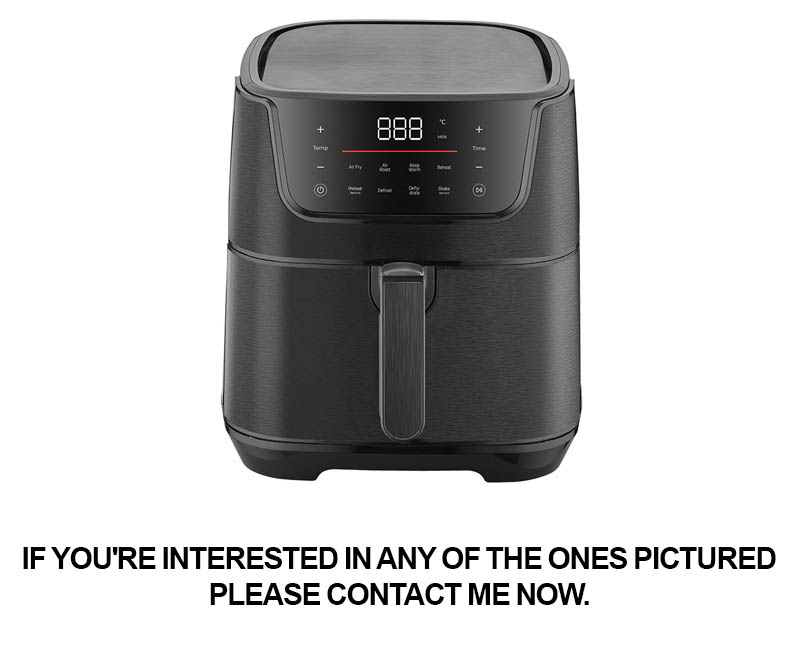
In the bustling kitchen of The Green Bistro, the introduction of an NSF certified air fryer has been nothing short of transformative. The sleek appliance stands out with its sleek design, and its performance has garnered both staff and customers raves. The kitchen team has found that the air fryer reduces cooking times significantly while maintaining the integrity of flavors and textures. It’s a game-changer for their busy service, allowing them to offer a variety of healthier, yet indulgent fried options.
At The Health Hub, a wellness center that prides itself on clean eating, the NSF certification was a pivotal factor in their decision to invest in the air fryer. Their clients, who are health-conscious and eco-friendly, appreciate the appliance’s ability to fry with a fraction of the oil that traditional deep fryers require. This has not only enhanced the nutritional profile of their menu items but has also resonated positively with their environmentally conscious clientele.
The sports arena, The Arena Cafe, saw an opportunity to cater to the post-game cravings of their patrons without compromising on health. The NSF certified air fryer was introduced to replace the deep fryer that was once the mainstay of their fry bar. The result was a noticeable shift in the popularity of their snacks. Orders for crispy chicken tenders and golden onion rings have soared, while the deep fryer has been largely phased out, contributing to a cleaner kitchen and a greener operation.
Over at The Family Diner, the introduction of the NSF certified air fryer was a strategic move to appeal to the diverse tastes of their family clientele. The fryer’s ability to produce a variety of foods, from crispy French fries to perfectly golden fish fingers, has become a hit with both the younger and older generations. The diner has noticed a marked increase in repeat customers, as the healthier options satisfy without sacrificing taste or satisfaction.
At The Italian Eatery, the air fryer has become an integral part of their pasta preparation. They’ve found that air frying their garlic bread and fried zucchini provides a crisp texture that complements their rich tomato sauces without overwhelming them. The cook staff has been impressed with the efficiency and the reduction in the kitchen’s carbon footprint, which is a big deal in their commitment to local sustainability initiatives.
In the catering industry, The Gourmet Event Company has leveraged the NSF certified air fryer to create showstopping dishes for corporate events and private parties. The fryer’s versatility has allowed them to offer gourmet snacks and entrees that are not only appealing but also meet the health standards of their clientele, who are increasingly health-aware.
The bakery, Sweet Elegance, has integrated the air fryer into its production line, using it to crisp up their cinnamon rolls and doughnuts. The air-fried treats have been a hit with their customers, who enjoy the lightness and the reduced guilt factor compared to the traditionally fried versions. This has opened up a new revenue stream and has also allowed the bakery to offer a wider variety of products.
These case studies illustrate how NSF certified air fryers have been successfully implemented across various types of businesses, from fine dining to casual eateries, catering services, and bakeries. Each instance shows how the technology has enhanced efficiency and sustainability without compromising on flavor or customer satisfaction. The common thread is a commitment to innovation and a willingness to embrace new technology that can drive growth and meet evolving consumer demands.
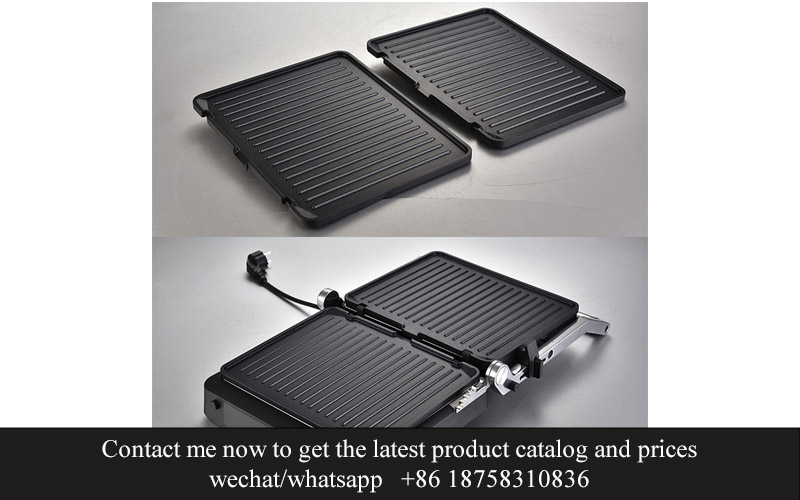
In today’s fast-paced culinary world, the air fryer has emerged as a game-changer for commercial kitchens. These devices are not just trendy; they are reshaping the way restaurants, cafes, and foodservice operations prepare and present food. As we look ahead, the future of the air fryer industry is poised to bring even more innovations and opportunities.
The rise of health-conscious consumers has fueled the demand for healthier cooking methods. Air fryers offer a perfect solution by allowing for crispy, flavorful results with significantly less oil than traditional frying. This shift towards healthier options has spurred a wave of technological advancements in the air fryer sector.
As we delve into the future prospects, we see a landscape that’s increasingly interconnected with smart technology and sustainability. Here are some key trends and innovations shaping the air fryer industry:
Smart Integration: Imagine an air fryer that can be controlled remotely via an app. This level of integration with smart technology is not just convenient; it’s a necessity for busy kitchens. Smart air fryers can be programmed to start cooking before the shift begins, ensuring food is ready on time without the need for constant monitoring.
Energy Efficiency: The future air fryers are expected to be more energy-efficient than ever before. This is crucial for businesses looking to reduce their carbon footprint and lower their utility bills. With advancements in insulation and heating elements, these fryers will cook food faster and with less energy consumption.
Customizable Cooking Profiles: As food preferences vary widely, the ability to adjust cooking profiles will become a standard feature. Air fryers with customizable settings can cater to a range of cuisines and dietary requirements, from crispy French fries to healthy roasted vegetables.
Enhanced Food Safety: With the rise of foodborne illnesses, the future of air fryers includes features that ensure the safety of the food being cooked. Advanced sensors can monitor temperature and humidity levels, preventing undercooking and overcooking, and alerting the user to potential safety issues.
Modular Design: The concept of a modular air fryer system is gaining traction. This would allow for the easy addition of new components, such as a grilling basket or a dehydrator, to create a versatile cooking station that can adapt to the needs of a kitchen without the need for multiple appliances.
Sustainability Focus: The air fryer industry is not only about innovation but also about sustainability. As consumers become more environmentally aware, the demand for eco-friendly air fryers will grow. This includes using recycled materials, designing for longer life spans, and ensuring that the manufacturing process is as sustainable as possible.
Global Expansion: As the popularity of air fryers continues to soar, we’ll see an increase in the international market. This expansion will bring with it a variety of cultural twists on the classic air fryer, offering new flavors and cooking techniques to a global audience.
Collaboration with Chefs and Nutritionists: To truly revolutionize the air fryer’s role in commercial kitchens, the industry will need to collaborate with culinary experts and nutritionists. This partnership can lead to the development of recipes and cooking methods that not only enhance the taste and health benefits of food but also simplify the cooking process for chefs.
Data-Driven Cooking: The future of air fryers may include data analytics that provide insights into cooking times, temperatures, and food quality. This data can help improve recipes and streamline kitchen operations, leading to more consistent and efficient cooking outcomes.
Health and Wellness Integration: As the health and wellness sector continues to grow, air fryers will likely be integrated with other kitchen appliances to create a cohesive cooking system. For example, an air fryer could be paired with a blender or a juicer to create a comprehensive health-focused kitchen.
The air fryer industry is on the brink of exciting developments that promise to transform the way we cook. By embracing these innovations, businesses can not only meet the evolving demands of consumers but also contribute to a more efficient, sustainable, and health-conscious future.
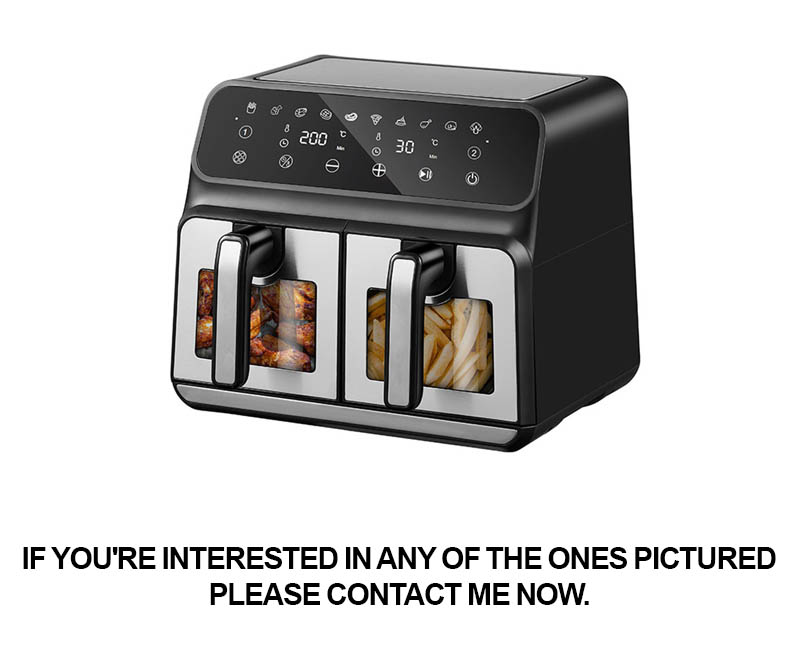
When selecting the perfect NSF Certified Air Fryer Plant for your business, there are several key factors to consider that will ensure you make a wise investment. Here’s a guide to help you navigate through the process:
1. Understanding Your Specific NeedsConsider the scale of your business and the volume of food preparation required. Are you running a small café with limited space, or a bustling restaurant handling large crowds? The size of the air fryer plant you choose should align with your kitchen’s capacity and the demand for your menu items.
2. Quality of Components and MaterialsA NSF Certified Air Fryer Plant is a testament to quality and safety. Look for manufacturers that use high-grade materials, ensuring durability and longevity. Components like heating elements, fry baskets, and safety features should be reliable and designed to withstand rigorous use.
3. Energy EfficiencyEnergy costs can add up significantly over time. Opt for an air fryer plant that’s known for its energy efficiency. Modern models often come with features that reduce power consumption without compromising performance, saving you money in the long run.
4. Customization OptionsEvery business has unique requirements. Choose a manufacturer that offers customization services. This might include different sizes of fryers, specific cooking capacities, or even integrated software for your kitchen management system.
5. After-Sales Service and SupportInvesting in an NSF Certified Air Fryer Plant is not just about the purchase. Consider the long-term support you’ll receive. Look for manufacturers that offer comprehensive after-sales services, including maintenance, repairs, and technical assistance.
6. Compliance with Health and Safety StandardsThe NSF certification itself is a crucial indicator of compliance with health and safety standards. Ensure that the manufacturer’s entire process, from design to delivery, adheres to these stringent requirements.
7. Customer Reviews and ReputationDo your homework. Read reviews from other businesses that have purchased from the manufacturer. Their experiences can provide valuable insights into the reliability and performance of the air fryer plants.
8. Training and Educational ResourcesA good manufacturer should provide training and educational resources to help your staff understand how to use the air fryer plant efficiently. This can include manuals, online tutorials, or on-site demonstrations.
9. ScalabilityAs your business grows, you may need to expand your kitchen operations. Choose an air fryer plant that is scalable, allowing for potential future upgrades or additions without significant reconfiguration.
10. Budget ConsiderationsFinally, balance your budget with your needs. While investing in a premium NSF Certified Air Fryer Plant might require a larger upfront cost, it can save you money in the long term through energy savings, reduced maintenance, and increased customer satisfaction.
11. Warranty and GuaranteeCheck the warranty and guarantee policies offered by the manufacturer. A longer warranty period and comprehensive guarantee can provide peace of mind and protect your investment.
12. Environmental ImpactIn an era where sustainability is a major concern, consider the environmental impact of the air fryer plant. Some manufacturers are now producing energy-efficient models that use less oil and reduce waste, aligning with eco-friendly business practices.
13. Technology IntegrationLook for air fryer plants that can integrate with your existing kitchen technology, such as smart systems for remote monitoring and control. This integration can streamline your operations and enhance efficiency.
14. Innovation and ResearchAn innovative manufacturer will be at the forefront of industry trends and advancements. Stay updated with the latest technology and research from the manufacturer to ensure your air fryer plant keeps pace with evolving consumer preferences.
15. Community and NetworkJoining a community of businesses that use the same air fryer plant can be beneficial. Manufacturers often foster networks where users can share tips, troubleshoot issues, and discuss best practices.
By carefully considering these factors, you can choose an NSF Certified Air Fryer Plant that not only meets your current needs but also has the potential to grow with your business. Remember, the right choice can lead to improved efficiency, customer satisfaction, and a positive impact on your bottom line.

In embracing technology for a healthier kitchen, the integration of advanced appliances like NSF certified air fryers is not just a trend; it’s a revolution. These innovations are reshaping the culinary landscape, offering a blend of efficiency, sustainability, and health benefits that resonate with both chefs and consumers alike. Let’s delve into the significance of this technological shift and how it’s paving the way for a brighter, healthier future in the kitchen.
The rise of air fryers in commercial kitchens has been nothing short of transformative. These appliances have become a staple due to their ability to mimic deep-frying with a fraction of the oil. This not only reduces calories but also slashes the risk of heart disease and other health issues associated with traditional frying methods. The adoption of NSF certified air fryers has been swift, as they meet rigorous safety and health standards, assuring operators and patrons of their quality and reliability.
Sustainability is a cornerstone in today’s business models, and air fryers are leading the charge. By using less oil and requiring less energy, these fryers are a greener choice for the environment. They’re also durable and long-lasting, which means fewer replacements and a lower environmental footprint over time. Businesses that invest in NSF certified air fryer plants are not just making a smart financial decision; they’re also contributing to a more sustainable future.
Consumer demand for healthier options has been on the rise, and this is where NSF certified air fryers shine. The trend towards clean eating and wellness has pushed restaurants and foodservice operators to offer dishes that are lower in fat and calories without compromising on taste. Air fryers have become a game-changer, allowing chefs to create crispy, flavorful dishes that cater to health-conscious diners without sacrificing quality.
The convenience factor cannot be overstated. NSF certified air fryers are user-friendly and require minimal training for staff. They’re easy to clean, which is crucial in a busy kitchen environment, and they can handle a variety of foods, from French fries to chicken wings, with ease. This versatility means that kitchens can offer a wider range of menu items, keeping customers satisfied and coming back for more.
Case studies have shown that successful implementations of NSF certified air fryers have led to increased customer satisfaction and loyalty. For instance, a local café that switched to air fryers reported a 20% increase in sales of their popular crispy chicken dish. The healthier option was a hit, and the café’s reputation for quality and innovation grew.
Looking ahead, the future prospects for NSF certified air fryers are bright. As technology continues to evolve, we can expect to see even more innovative features that enhance performance and user experience. Smart air fryers that can be controlled remotely, for example, could revolutionize the way kitchens operate. These advancements will likely include improved energy efficiency, longer lifespans, and even more healthful cooking options.
When choosing the right NSF certified air fryer plant for your business, consider the following factors. Look for a manufacturer with a strong track record of producing reliable and durable appliances. Check for certifications and reviews that vouch for the quality of their products. Also, consider the size and capacity of the fryers to ensure they meet your kitchen’s needs. Energy efficiency is key, as it will not only save you money but also contribute to a greener operation.
In conclusion, embracing technology for a healthier kitchen is not just a trend; it’s a strategic move for businesses looking to stay competitive and cater to the evolving demands of their customers. NSF certified air fryers offer a unique blend of health benefits, sustainability, and efficiency that can enhance a business’s bottom line and its reputation. As the industry continues to innovate, those who adapt and invest in these cutting-edge solutions will find themselves at the forefront of a healthier, more sustainable culinary landscape.